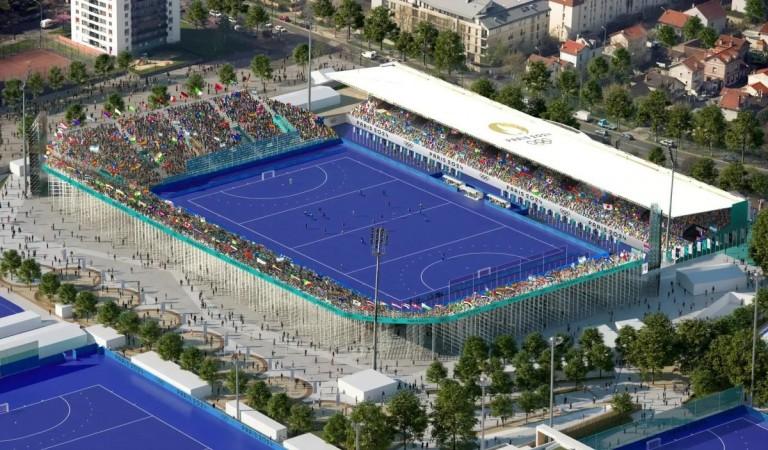
The Paris Olympic Games of 2024 are set to make history by introducing the world's first carbon-zero hockey turf. This groundbreaking move is a testament to the commitment of the International Hockey Federation (FIH) to make hockey a globally sustainable sport. The innovative turf, known as 'Poligras Paris GT zero,' is a product of the Sport Group and installed by Polytan. It is designed to reduce environmental impact and align with the Paris 2024 Games' commitment to sustainability and environmental responsibility.
The turf is made from 80% sugarcane and manufactured using green electricity. This eco-friendly approach emphasizes low emissions and energy efficiency, ensuring that the turf's lifecycle—from creation to disposal—adheres to the highest environmental standards. The introduction of this turf does not compromise on performance. Athletes can expect the same high-quality playability, ball speed, and consistency that Poligras surfaces are known for, which have been trusted at eight Olympic Games and many World Cups.
Sustainability Meets Performance
The Paris 2024 Olympics Hockey aims to showcase that sustainability and top-tier athletic performance can go hand-in-hand. The 'Poligras Paris GT zero' turf is designed to conserve water, requiring significantly less irrigation than traditional synthetic turfs. This aligns with global efforts to preserve water resources, a particularly relevant issue as the world grapples with water scarcity.
The initial steps towards this goal were taken with a steady reduction in water usage, showcased by the turf used at the Olympic Games in Tokyo requiring 39% less water for optimal performance than the turf used in Rio only four years earlier. The Paris 2024 Olympics will push the boundaries further, with hockey being played on this innovative turf.
Setting a New Standard for Future Games
This marks a significant advancement in sustainable hockey technology. By utilizing renewable resources and focusing on environmental impact, this new turf not only supports elite athletic performance but also sets a precedent for future hockey events to prioritize sustainability, which has long been an aim for the FIH.
The Paris Olympics' commitment to sustainability is not an isolated incident. In the past, the Olympic Games have been a platform for showcasing advancements in sustainable technology. For instance, the 2016 Rio Olympics made headlines for its efforts to offset carbon emissions, and the 2020 Tokyo Olympics aimed to be the most eco-friendly games ever, with initiatives like medals made from recycled electronics.
In conclusion, the Paris Olympic Games of 2024 are set to make history with the world's first carbon-zero hockey turf. This move is a testament to the commitment of the International Hockey Federation and the Paris Olympic Committee to promote sustainability in sports. It is a significant step towards making sports more eco-friendly and aligns with global efforts to combat environmental challenges. The Paris Olympics will not only be a thrilling showcase of skill, strategy, and athleticism but also a platform for promoting environmental consciousness and sustainability. This is a crucial aspect of the legacy that the Paris Olympics aims to leave behind, not just in terms of sporting achievements but also in advancing environmental consciousness within the realm of global sporting events.









